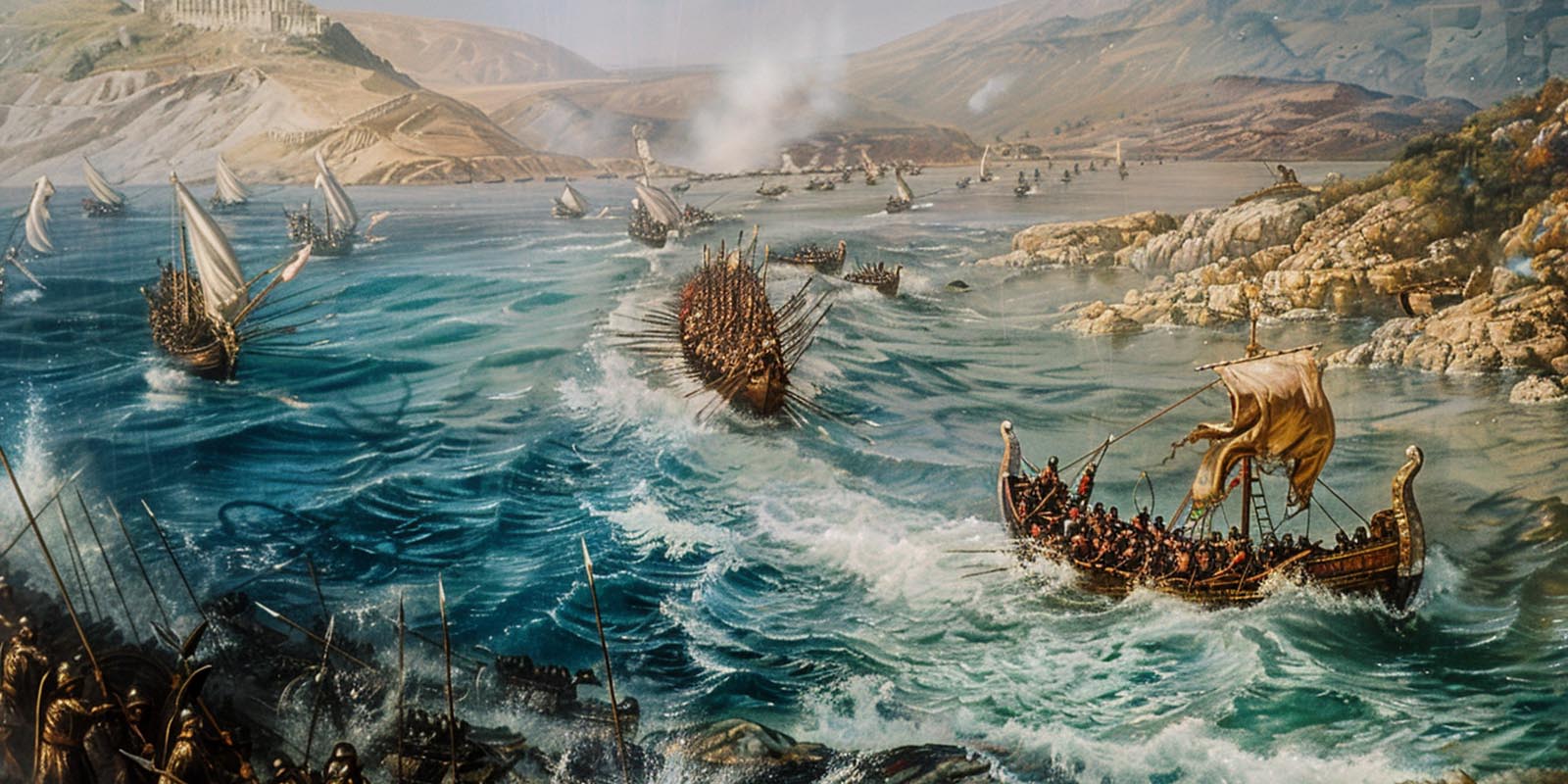

"The Odyssey" is an epic poem attributed to Homer, chronicling the adventures of Odysseus as he attempts to return home to Ithaca after the Trojan War. This classic work explores themes of perseverance, cunning, and the human spirit, offering rich insights into ancient Greek culture and values.
Odysseus, the Hero: Odysseus is renowned for his intellect and resourcefulness, traits that are central to his character. Unlike the might of Achilles, Odysseus’ heroism is defined by his wit, cunning, and ability to navigate through trials and tribulations. His journey is both a physical and a spiritual odyssey.
Encounters with the Divine: The gods play an instrumental role in "The Odyssey," guiding and obstructing Odysseus' journey. Athena, the goddess of wisdom, aids him, while Poseidon, the god of the sea, seeks vengeance. These interactions highlight the belief in divine intervention and the favor or wrath of the gods influencing human destiny.
The Trials and Adventures: Odysseus faces numerous challenges, including the Cyclops Polyphemus, the enchantress Circe, and the Sirens. Each encounter tests his ingenuity and resilience. These adventures symbolize the broader human struggle against adversity and the quest for home and identity.
Hospitality and Loyalty: Themes of hospitality (xenia) and loyalty are prevalent throughout "The Odyssey." Odysseus' journey is marked by the varying receptions he receives, from warm welcomes to hostile encounters. Loyalty is exemplified in characters like Penelope, who remains faithful to Odysseus, and Telemachus, who seeks to protect his father’s legacy.
Homecoming and Reunion: The climax of "The Odyssey" is Odysseus’ return to Ithaca and his reunion with his family. This homecoming is fraught with challenges, including reclaiming his throne and dealing with the suitors vying for Penelope’s hand. The resolution underscores the values of perseverance, justice, and the restoration of order.
Societal Values and Norms: The epic reflects the societal norms and values of ancient Greece, such as the importance of family, honor, and respect for the gods. It provides a window into the hierarchical and patriarchal structure of Greek society, emphasizing the roles and expectations of men and women.
Literary Significance: "The Odyssey" has had a profound influence on Western literature and storytelling. Its narrative structure, rich characterizations, and thematic depth have inspired countless works of art, literature, and philosophy. The epic’s exploration of the human experience continues to resonate with audiences today.
Legacy: "The Odyssey" remains a cornerstone of Western literature, its themes and characters enduring through centuries. The epic’s emphasis on the journey, both physical and metaphorical, reflects the universal quest for meaning, identity, and home. Its legacy is evident in various cultural and artistic expressions, underscoring its timeless relevance.

Did you know that "The Odyssey" is not just a tale of adventure, but also a profound exploration of the human condition? Odysseus' journey home symbolizes the struggles and triumphs of life, making it a timeless epic that continues to inspire and captivate readers.
Ancient Greek art and architecture, with its harmonious proportions and timeless elegance, continue to inspire awe and admiration millennia later.
Discover
Greek mythology, a rich tapestry of gods, heroes, and mythical creatures, captivates the imagination with its tales of love, betrayal, and epic adventures that delve into the depths of the human psyche.
Discover
Ancient Greek history, marked by remarkable achievements in democracy, philosophy, and warfare, shaped the foundation of Western civilization, leaving an indelible legacy of innovation and cultural influence that continues to resonate to this day.
Discover
The ancient Greek Olympics, held in Olympia every four years, celebrated athleticism, unity, and cultural pride, serving as a testament to the enduring spirit of competition and excellence that transcends time and borders.
Discover
Ancient Greek wars, such as the Persian Wars and the Peloponnesian War, were pivotal conflicts that shaped the course of history, highlighting the struggle for power, independence, and the clash of civilizations in the ancient Mediterranean world.
Discover
Ancient Greek culture and society, characterized by its emphasis on art, philosophy, and civic engagement, fostered a vibrant intellectual and social landscape where innovation flourished, democracy thrived, and the pursuit of knowledge and excellence was celebrated as fundamental values of civilized life.
Discover
Find out more about ancientgreece.com